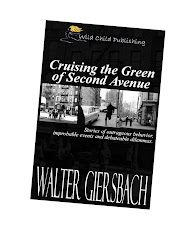The trouble is, there’s no apparent way to “update the content.” This Kafka-esque situation gives me no alternative but to post the review to Amazon. There
I downloaded Rejection for my Nook on the basis of a Facebook friendship, several ecstatic reviews that now seem highly suspect, a bias toward new writers, and a love of the detective/mystery genre.
This is the first time I’ve been upset by a carelessly edited, poorly written, badly researched, clichéd novel. My disappointment wouldn’t have been so deep if I hadn’t just finished Pete Hamill’s Tabloid City and Dennis Lehane’s The Given Day. In contrast, both are richly textured, almost literary works whose focal point is crime. Rejection is a potboiler.
The saddest sticking point is that Matthews has given us “Malcolm,” an invented borough of New York City. Please! NYC has five distinctive boroughs, and none of them are 19th century hamlets. New York has a Delancey St., but none spelled without the “e”. (Check your city guide, Mr. Matthews.) And for a police writer to refer to “Dunkin’ Doughnuts” is unforgiveable (as much a calumny as his having overweight African-American women cops reaching orgasm over doughnuts). The lack of editing goes right on through a major character named Smythe being referred to as Smyth.
It’s dangerous to try describing a place you don’t know. For example, “Avenue of the Americas [New Yorkers call it Sixth Avenue] stretches out like the movie set of a quintessential New York landscape. Here [sic] business and commerce embrace the swirling lifestyle of the printed word. The place is lousy with magazines, book publishers and high rent offices, all connected by text messages, phone lines and power emails that jump from one side of the concrete canyon to the others.” Aside from the geographic invention, I defy anyone to make sense of this paragraph.
I think Matthews has never met a punctuation rule he didn’t ignore. It’s common to find commas missing after an interjection, periods missing in sentences, and often entire words missing in a simple declarative sentence. My proofreader would have characterized this work as a “dog’s breakfast.” Jerry Shapiro, the publisher, says it on p. 330, “I’ve looked at some of these [POD] books and the covers look good, but inside is a nightmare of bad writing, misspelled words and poor editing. It makes the heart weep.”
Somehow, the entire strength of this mystery lies in the fact that literary agents are being murdered in gratuitous venal ways. (No spoiler alert, but the case is resolved 50 pages from the ending.) Is this a case of Matthews transferring his own professional problems onto his stock characters? If this is the situation, there should be a “Predators and Editors” Web site warning agents against amateur writers who self-publish.
The rejection of this book lies not only in the title. As Shapiro the publisher says, “It makes my heart weep.”



2 comments:
The last chapter of Jennifer Egan's A Visit from Goon Squad is slightly futuristic and talks about Parrots--people paid to talk up something to get it attention. Maybe something like that explains the popularity of the novel you reviewed.
Thomas Matthews wrote me a few days after this review was posted:
“Just wanted to drop a line and thank you for the honest review of Rejection. Unlike many writers, I embrace the criticism and honest opinions of readers, especially ones that are knowledgeable as you. You are right, the book is a mess. Since this was first released through Otherworld Press (NOT a POD, believe it or not) I have been picked up by the Marsal Lyons Literary Agency and the book has been rewritten under the capable guidance of Jill Marsal. The production through Otherworld has been cancelled as of the first of Jan and the book should be re-released in better form in May or June. Again, thank you for your brutal and correct appraisal.”
I wrote back, “Thank YOU for your cordial comments. I always feel bad posting a less-than-stellar review, but I'm as guilty as any writer for having let less-than-perfect copy go to press. It may be of interest that Barnes & Noble refused to run the review because of "language" that didn't meet its specs (?!).
Post a Comment